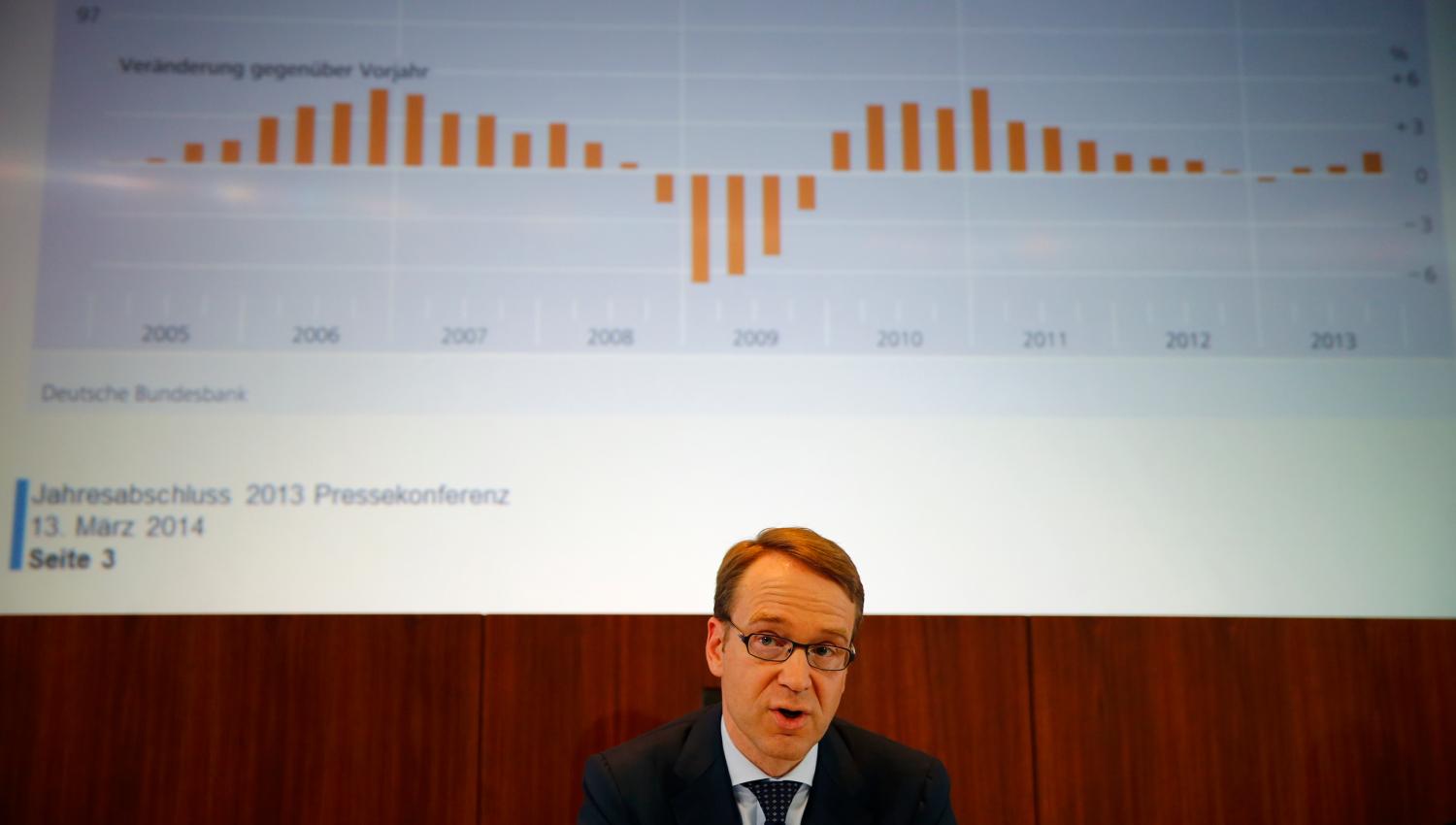Introduction
The Deutsche Bundesbank, the German central bank, is commonly regarded as the Euroarea’s boogeyman. The pressure imparted by the German monetary authority, for instance, rendered the European Central Bank reluctant to follow the footprints of the Federal Reserve and of other central banks, and engage in non- standard monetary policy measures that might rapidly put an end to the crisis that has been plaguing the euro zone. At several stages, during the current crisis, the ECB has been forced to take actions and prevent severe economic and financial dislocations. Given the institutional vacuum at the area-wide level and the lack of political capacity of the other institutions, the European Central Bank had often to move across the borders of its traditional domain. This has given reason to a slew of criticisms repeatedly and loudly voiced by the Bundesbank. Being also the most vocal policy actor evoking the fiscal risks associated with effecting implicit cross-border transfers via the ECB’s balance sheet, the Bundesbank has appeared to have a “non-monetary” hidden agenda or even a “national political” mission.
In fact, the Bundesbank has regularly appealed to two fundamental principles of sound economic and monetary policy management that cannot be easily overlooked by anybody concerned that monetary policy may lose its ability to preserve price stability. Should monetary independence be eroded by the increasing tasks devolved to the central banks, wider economic and political consequences might then arise. The first principle is the need to avoid fiscal dominance, not allowing inflation to be determined by the level of fiscal debts; the second is the “principle of responsibility” that sees a contradiction if individual responsibility is blurred by the intervention of joint liability as in the case of a State running unsound fiscal policies and being automatically bailed out by the mutualization of its liabilities.
The Bundesbank considers those principles violated in the recent experience of the Euro area. This leads the German central bank to observe that the current degree of economic integration should be wound down and that a repatriation of responsibilities at the national level should ultimately occur. However, if the two principles – avoiding fiscal dominance and the individual responsibility – need to be applied together, then the paradoxical conclusion is that, contrary to what the Bundesbank maintains, the stability of the euro area cannot be granted by domestic measures enacted by single countries. In fact, to avoid fiscal dominance the euro-area countries must remain exposed to the possibility of a debt default. But default produces a wide array of contagion effects and consequently disrupts the principle by which responsibility should be borne exclusively by the country source of liability. The two principles fall into a grave contradiction.
Ultimately, the problems of coordination between economic policy and monetary policy, emerged with the European crisis, may require a new institutional framework that allows the cooperation between countries and European institutions to occur at a much earlier stage than national policymakers are ready to admit. Namely well before the moment when the risks of default loom. Before default spreads its contagion, policy coordination must intervene and prevent a dangerous development in single countries. The consequence may be that common solutions need to be designed on the basis of more – not less – shared sovereignty.




